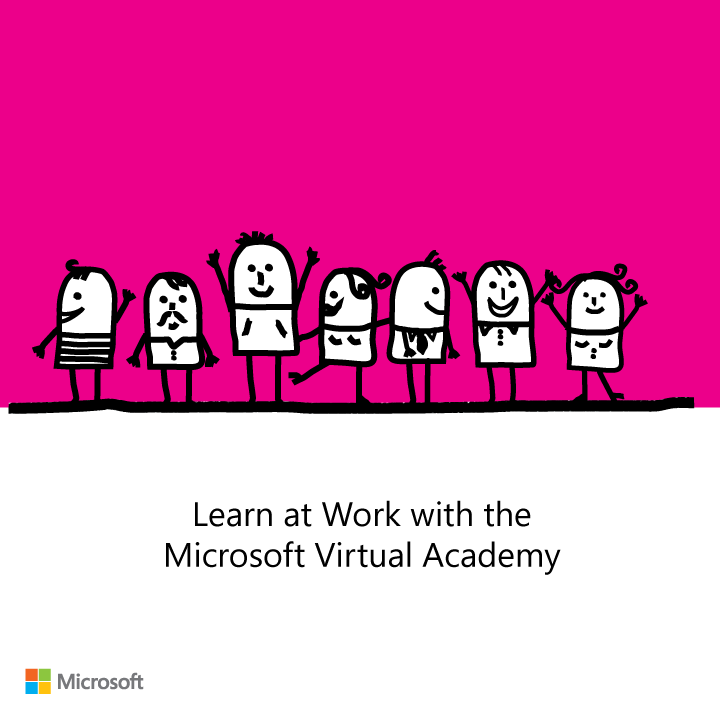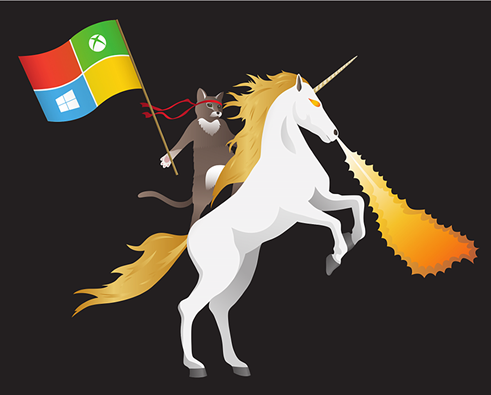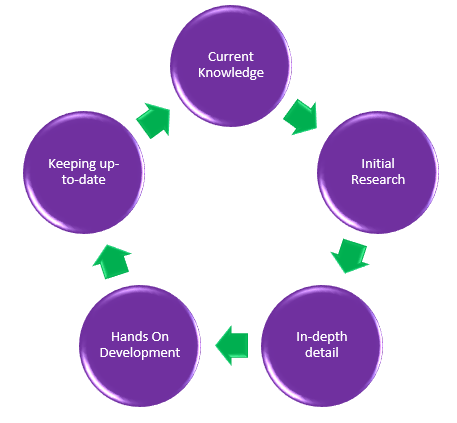Continuous Learning is Key to Progressing
 Amy Nicholson is a Technical Evangelist at Microsoft specialising in Data Science & Cloud Gaming. She's always keen to share experiences and expertise in data and technology; online and at events.
Amy Nicholson is a Technical Evangelist at Microsoft specialising in Data Science & Cloud Gaming. She's always keen to share experiences and expertise in data and technology; online and at events.
Continuous learning is the key to progressing within any industry and this is truer than ever within the technology industry. As technology innovation is moving at an ever quicker pace, developers and ITPros should be comfortable with learning to build up their current skill set whilst also branching out into other areas of technology. Once you have a broader understanding of a whole range of technologies, you can start to think of ways to bring these together to create something truly innovative.
Thinking back to this time last year, I had just a submitted my final dissertation on ‘Sentiment Analysis of Twitter Data’ at The University of Sheffield, and I was studying hard for my finals feeling like my degree wanted me to consume the whole of the technology industry for my exams. However I realise now more than ever, that leaving University is by no means the end of your learning, it is only the start. Learning is a continuous cycle.
Within this post I wanted to talk to you about how I moved from being a Computer Science student to working in a technical position at Microsoft, what my plan was for overcoming the initial learning curve, as well as my techniques and favourite resources.
In my role as a technical evangelist I find I learn about new things every day! Be that from chats with other members of the team, information within emails or on Yammer groups, or simply extending my knowledge of current technologies to present great new features to our technical audiences and customers. Sharing information with the incredibly intelligent people on the team, means we are all building our knowledge and learning from each other.
However when I arrived, I initially felt a little bit like this:
Or maybe this:

There was a whole host of technologies out there that I had never really researched before. With so much to learn and wanting to excel at the ‘day job’ of being a technical evangelist as well, it felt a little overwhelming.
However, I have never been known for giving up when things get a bit hard, so I did what I do best, I started to research resources out there and I made a plan. Below are the steps I take to learn something new.
- Current Knowledge– Don’t lose the tactics you learnt at University and the great resources you used to complete your technical degree. Towards the end of university you normally have a pretty good understanding of how ‘you learn best’, now you just need to define this for the workplace.
At the start of my degree I would aimlessly search the internet for good resources and this would take time. However you start to establish a collection of your favourite code issues, samples, and bug bashing websites: for example some of mine are StackOverflow, W3C, Colour Schemes and the Python Programming Cookbook. So keep in contact with these sites, they could help you when you’re building new skills as well.
Also try new tools for productivity when learning. I used to be the most unusual Computer Science student as I loved writing notes and making lists with a pen and paper. However now I have been introduced to OneNote, I am hooked! You can get a free download now and it can go on all your devices so your notes are always in sync. Now when I am learning new skills, I have a OneNote workbook with sections and lists; it’s an organised persons dream.
- Initial Research – When starting to research a new technology start with the high level information, make sure you understand what the technology is and when it is best to use it. I find doing a quick search using your favourite search engine is always a good place to start.
More recently I have noticed there is a trend for short introductory videos into different technologies and services. A great example of this is when I was trying to learn about all the new services avaliable on Azure, Microsoft’s Cloud. They have a great on-going series called ‘Azure Fridays’ where introductory 5-15mins videos are recorded talking about each service at a high level. These video are searchable from the site and available on demand. Scott Hanselman sums it up really well, “ I learn best when a trusted friend sits down next to me and we work together on a problem. Just two engineers, a laptop and the cloud, solving problems. I'm trying to bring that experience to you every Friday. No editing, no marketing, just solutions.”
So if you are looking for updates to your favourite cloud services or wanting to branch out into various new IoT and data services check out the Azure Friday’s webpage
- In-depth detail and courses – Now you have an overall understanding of the technology and you might have a development scenario in mind, but you need more detail on how to build these solutions.
 I quite like using online video courses where they have a selection of structured, short videos with detailed content and demos. There might also be a downloadable presentation to refer back to at another time, and a quick set of questions to check you have understood the content described. A great example of this is the Microsoft Virtual Academy (MVA) Site. With 17 pages, each containing 30 different courses, so 500+ different courses on the site, this is a great source to add to your favourites tab!
I quite like using online video courses where they have a selection of structured, short videos with detailed content and demos. There might also be a downloadable presentation to refer back to at another time, and a quick set of questions to check you have understood the content described. A great example of this is the Microsoft Virtual Academy (MVA) Site. With 17 pages, each containing 30 different courses, so 500+ different courses on the site, this is a great source to add to your favourites tab!
You might also notice that MVA invite back some of their great speakers to create new content. For example a couple of years ago I completed this C# for beginner’s course with Bob Tabor before I started my Internship at Microsoft’s search engine Bing: C# Fundamentals for Absolute Beginners.
I noticed more recently that Bob Tabor has produced an Azure Fundamentals course on MVA, so as I am learning new skills so are some of the recognised names in the industry: Microsoft Azure Fundamentals.
- Hands on Development – I believe one of the key parts of learning a new skill is actually getting in there and building something. This may be taking some sample code and customising it, or following along with informative blog posts like this one on the Stream Analytics Cloud Service: Get started using Azure Stream Analytics: Real-time fraud detection. Blog posts like this can be found at the bottom of any Azure Service webpage under the ‘Learn More’ header.
Also don’t feel like you have to make a concrete decision on whether you will use this technology further in the future, there are often free trials avaliable for most new technologies, so you don’t have to worry about initial investment. An example is you can sign up for an Azure one-month free trial providing you with £125 to spend on all Azure Services for that one month. This is great because you try-before-you-buy and even after one month it is pay-as-you-go. So check out all the services with your trial and then start using your favourites the following month. I might have left University but I still love all the offers and free trials!
- Keeping up-to-date – Now you have learnt a new skill and developed some new content, it’s always a good idea to try and keep up-to-date on the changes within the technology. As products and services are being released earlier and earlier in development, keep an eye on the new features and integrations released over time. I do this by following my favourite technology experts on Twitter for example Joseph Sirosh who tweets about what has just been released in Azure Machine Learning, as well as cool articles showing some great examples of using the technology like How-Old.Net and Connected Cows
So this is my plan to take forward in the future. Again, the key word in this article is ‘continuous learning’. I am going to keep iterating over this cycle and hopefully get back to you at another point with even more resources to share.
So from initially feeling a bit overwhelmed, now I feel more like this Cat! Building my knowledge all the time in various areas of technology and having my fire-breathing unicorn (favourites tab on Microsoft Edge) take me to my favourite learning resource destinations.
 Learning at Work Week Competition
Learning at Work Week Competition
Resources
Where do you go to learn? Let us know in the comments section or via @TechNetUK #LearningatWorkWeek

